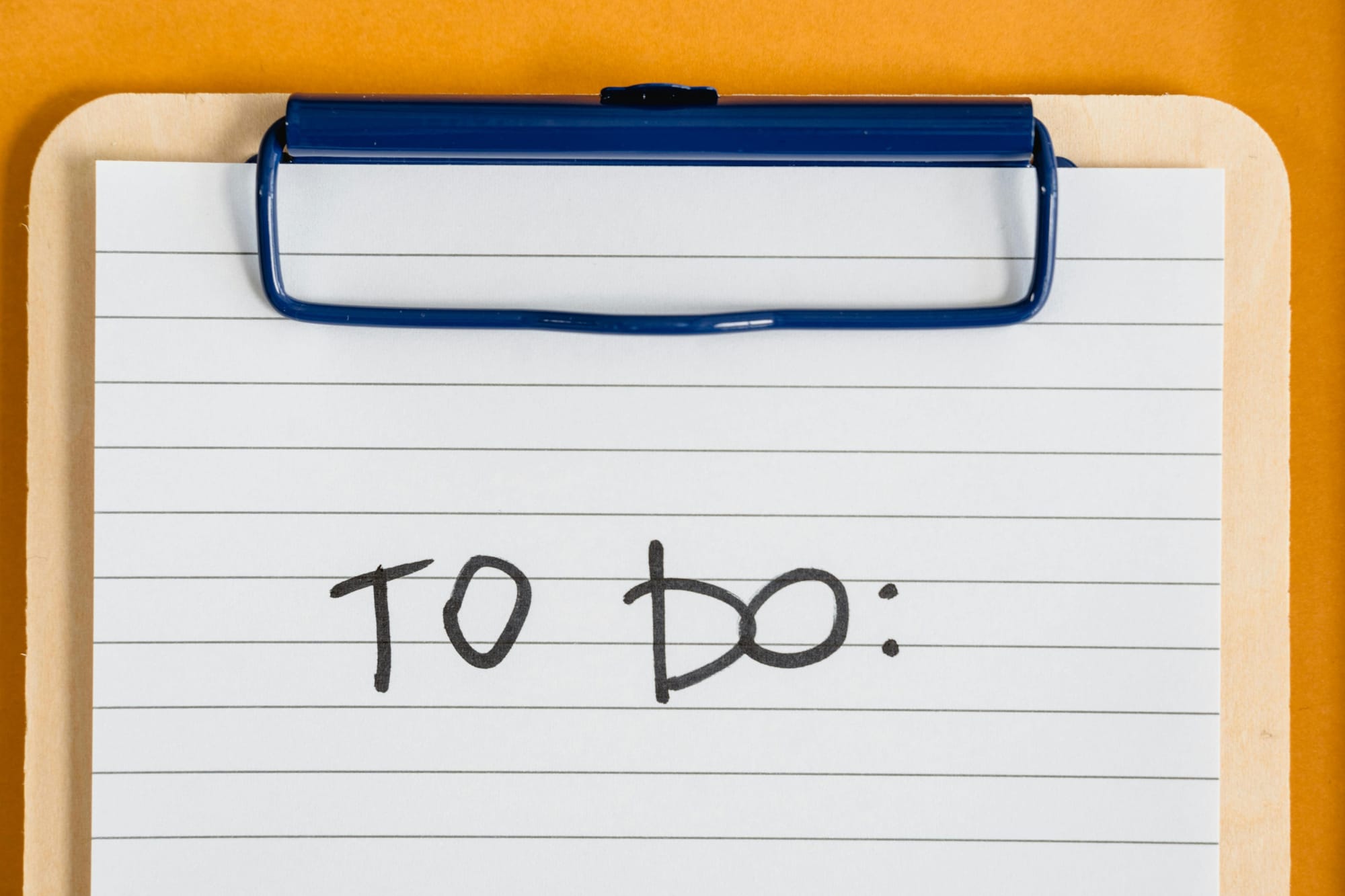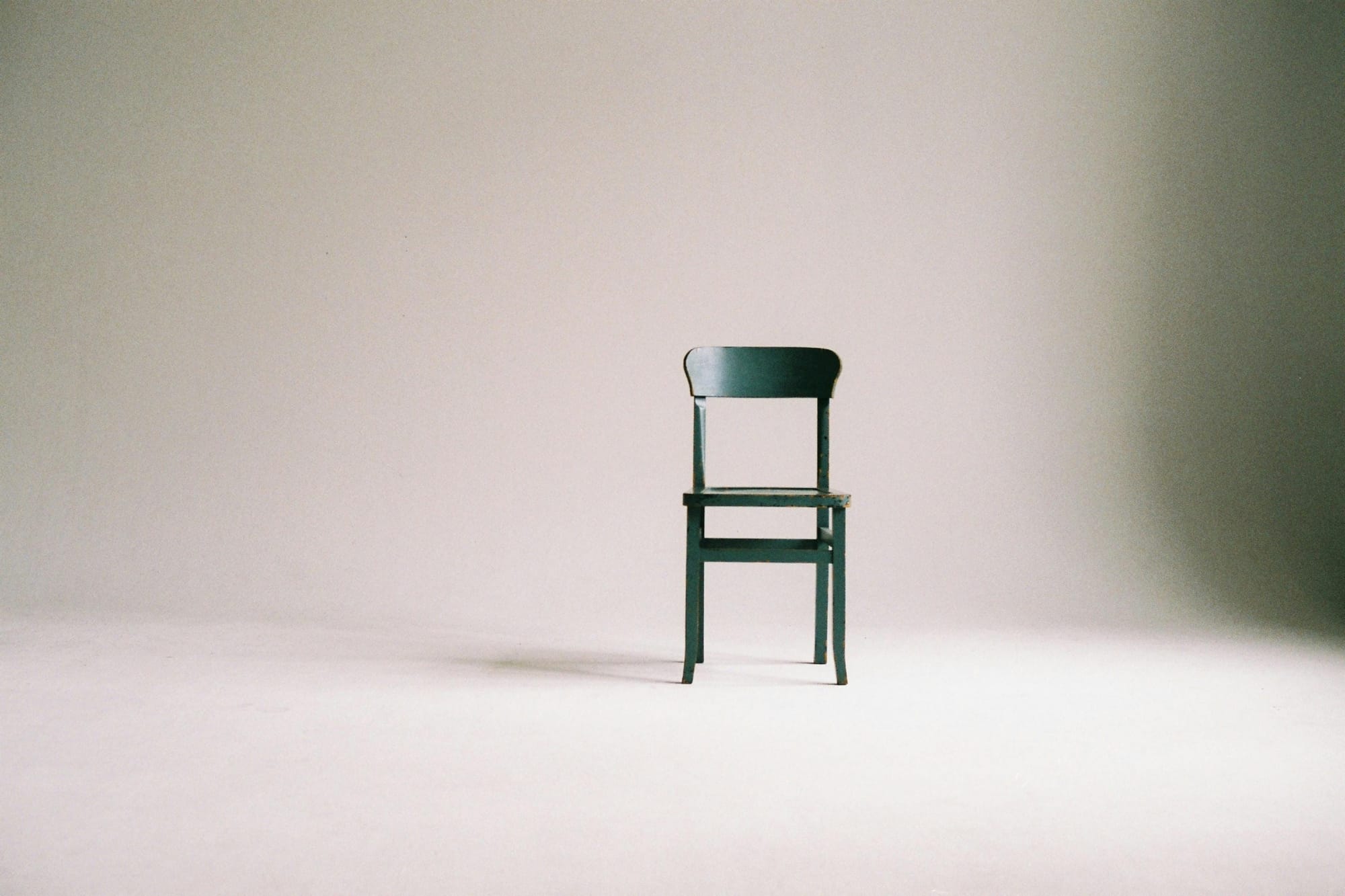“Quietly do the next and most necessary thing." - Carl Jung
This line comes from a letter Jung wrote in response to a fan (psychologists have fans?!) who wrote in asking that most basic of questions—how to live her life.

The dominant culture around her (Switzerland around the turn of the 20th century) told her to get married and do whatever her husband bade her do—that didn’t sit right with her. Here’s the line above, with some additional context thanks to The Marginalian, because you already know I love me some context:
But if you want to go your individual way, it is the way you make for yourself, which is never prescribed, which you do not know in advance, and which simply comes into being of itself when you put one foot in front of the other. If you always do the next thing that needs to be done, you will go most safely and sure-footedly along the path prescribed by your unconscious. Then it is naturally no help at all to speculate about how you ought to live. And then you know, too, that you cannot know it, but quietly do the next and most necessary thing. So long as you think you don’t yet know what this is, you still have too much money to spend in useless speculation. But if you do with conviction the next and most necessary thing, you are always doing something meaningful and intended by fate.
This idea resonates strongly with me and is perfectly in line with my whole stoic/minimalist thing. I’m 6+ years into a writing career, was recently laid off from my day job in Content Marketing, adopted a young Australian Cattle Dog mix, and to top it off was recently involved in a traffic collision.
How in the everloving hell am I supposed to also be job hunting, maintaining my freelance business/blog, AND getting a weekly post ready to go here at ILHYT?!
By keeping this quote in mind. And breathing, breathing helps a lot, too.
In keeping with the spirit of context and how much it matters, Let’s look at each of the words in Jung’s quote and see what we can glean.
Quietly
Aside from the obvious connection to “speak softly and carry a big stick,” the idea of going about your business without broadcasting it far and wide has a lot of appeal. If more people adhered to this idea I feel like there’d be a lot less discontent in the world.
I do pretty much everything quietly, always have. Between being strongly introverted and my sensitivities leading me to favor quiet in all things — this is just how I am. Quiet.
Unless I’m listening to the Dead, then all bets are off.
As I began my career shift around 2018, I surprised several close acquaintances, not least because they had no idea how miserable I was in IT. But also because they didn’t think I had it in me to do something they saw as radical, like jumping careers at 40.
I was taken aback. I honestly hadn’t realized how little I gave away in terms of how I was feeling at any given moment, let alone something I had been planning for months if not years.
There’s power in moving quietly through life. Less chance of someone or something becoming a stumbling block if they don’t know what direction you’re going.
Next
With all the focus on productivity in recent years, I fear an inevitable backlash. With all the to-do methods, note-taking wonder apps, and TED talks…I honestly believe we as a culture are heading toward a time when people will be unable to function without a beep coming from their pocket to remind them to breathe.
We’ve largely lost the ability to function on intuition — whether it’s been beat out of us by overbearing managers or it’s because we’ve also lost the ability to remember anything for more than 3.5 seconds.
That said, I don’t keep great to-do lists.
I mean, I generally know what I need to be working on at any given time, but not in any sort of officially sanctioned way. For work, someone gives me a task with a deadline, and I work on that until I need input. Outside of work…all bets are off.
Instead, I move by intuition and in my reading, so did Jung. What comes next is what you feel should come next. When I’m staring at my work tickets, they have deadlines attached, so it’s fast and easy to know which one to pick up work on. Outside of that, I know if I need to wash the windows or pull weeds when I look at the front of the house and one or the other jumps up and says “me, me!”
And
Not ‘or.’ Not ‘then.’ And is a powerful word because it acts on our subconscious.
It tells us that both of these factors need to be in play for this to work. I’ve been trying out using the improv technique of replacing “no, but” with “yes, and.” It’s doing truly interesting things in my work meetings and general conversations with friends. I’ll have more to say on this in relation to coaching in later essays.
Most Necessary Thing
Not just the next thing in line. Not the absolute pinnacle of necessity. I know this is a combo of 3 words, but the first two modify the last, so I’m treating it as a single idea.
To me, this idea means you can’t just have a rough list, you also need to be able to prioritize that list—preferrably on the fly.
Things change.
Shit happens.
Adjust accordingly.
You’ll find intuition coming into play again here. How do you know what’s ‘most necessary’ unless it’s by stepping back and assessing the context?
Say it’s 3:00 Saturday afternoon and you have a chore list running into double digit pages long. What comes after mowing the lawn and washing the car? Weeding? Fixing the squeaky hinge on the bathroom door? Walking the dog?
Take a breath or three. Look around. Is it getting cloudy? Maybe get the weeding and dog walking out of the way before it starts raining, then move inside for the hinge. Or may the dog is looking longingly at their leash, they deserve it so take them first, then reassess.
Either way, tasks got checked off the list, the dog ends up snoozing happily on the couch, and you can move on with your Saturday.
The deceptively complicated idea of simplicity first came to my attention via the tongue-in-cheek heuristic K.I.S.S. or, Keep It Simple Stupid (origin unknown to me). That was back in high school, yet it took me until well after college to realize you could apply this idea to literally all facets of life.
That led to minimalism, to which I subscribed while living overseas a decade ago. Then I came home to Seattle and realized the dogma surrounding that word was making it untenable more-so than the actual way of life.
So when I read an essay (later to become a book, albeit a short one) called Enough, I was intrigued. The idea is so simple as to break my brain if I think about it too much, which of course, I have.
Have enough to live the life you want.

See what I mean? On the surface it seems almost too…simple, doesn’t it? But if you ponder for a bit, maybe while watching a river roll by (or that may just be me), you’ll realize how profound the idea truly is.
Then you’ll start applying it, and before long you’ll realize you haven’t bought a new pair of pants in a year, resoling your Chacos keeps them happy, and your 3 year old Macbook works just fine for your needs.
And before you know it, quotes like Jung’s above resonate so strongly you find yourself struck dumb the first time you see them.
Or that may just be me.




